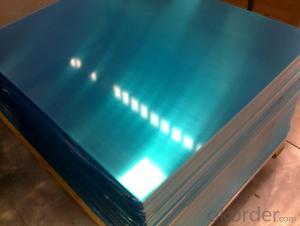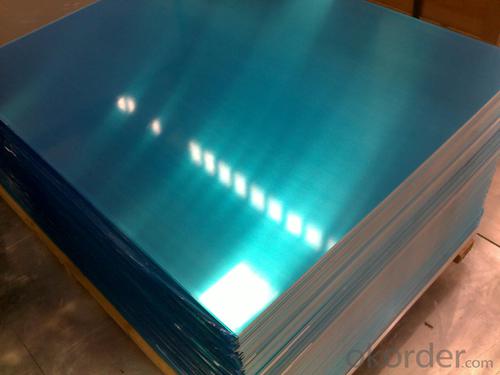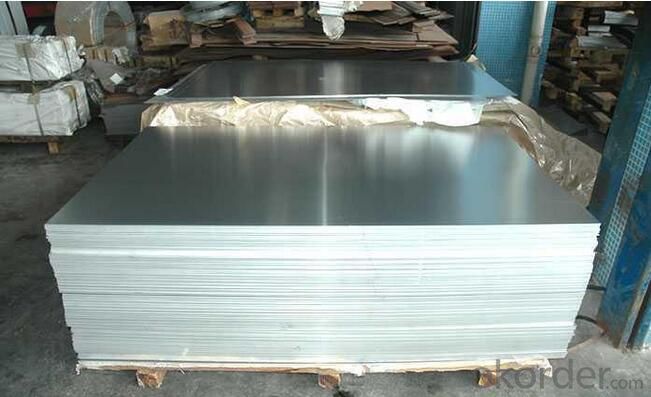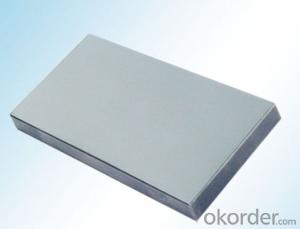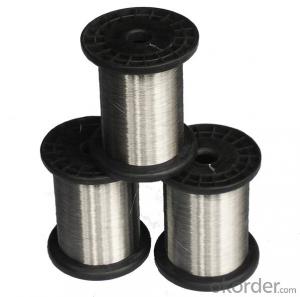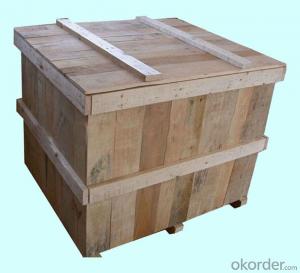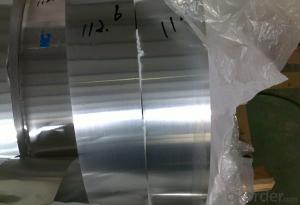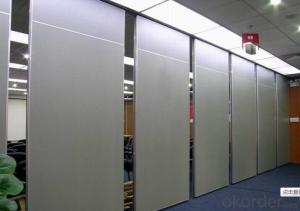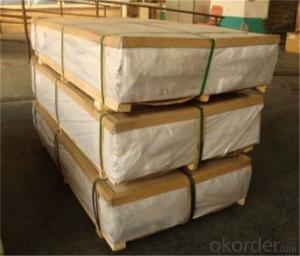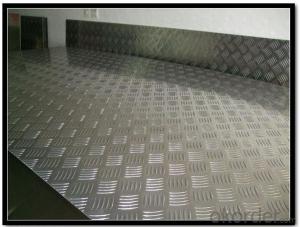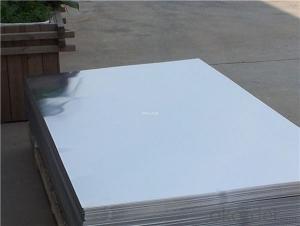Aluminum Sheets for Walls - 5052 5054 0.2mm-1mm Thickness Insulation Aluminum Mirror Sheet
- Loading Port:
- China main port
- Payment Terms:
- TT OR LC
- Min Order Qty:
- 5 m.t.
- Supply Capability:
- 500 m.t./month
OKorder Service Pledge
OKorder Financial Service
You Might Also Like
Specification
5052 5054 0.2mm-1mm thickness insulation aluminum mirror sheet
ALLOY : AA1***(AA1050,AA1060,AA1070,AA1100etc)
AA3***(AA3003,AA3004,AA3005,AA3105etc)
AA5***(AA5052 etc)
TEMPER:H14,H18,H24,H26,H32
THICKNESS:0.2mm-20mm
WIDTH:10mm-1500mm
EMBOSSED PATTERNS : Diamond, stucoo,bars etc
STANDARD: GB/T3880-2006
Special specification is available on customer's requirement
Product Description
Goods name | Aluminum plate |
alloy | Yes |
Plance of origin | China |
Quality | Prime quality |
Certificate | ISO9001 |
Grade | 3000 Series |
Thickness | 0.3-150mm |
Type | Plate |
Width | 300-1950mm |
Model number | 3003,3004,3005,3014,3105 |
Surface | Mill finish |
Temper | O-H112 |
Ensure | we can supply customers' with different specifications of the highest quality and lowest price. Sincerely welcome to contact us for the future details if any item interest you ,and we will make every effort to assure that your requirements will be satisfied,and we hope to establish long-term business relations with you on the basis of the equality and mutual benefit. |
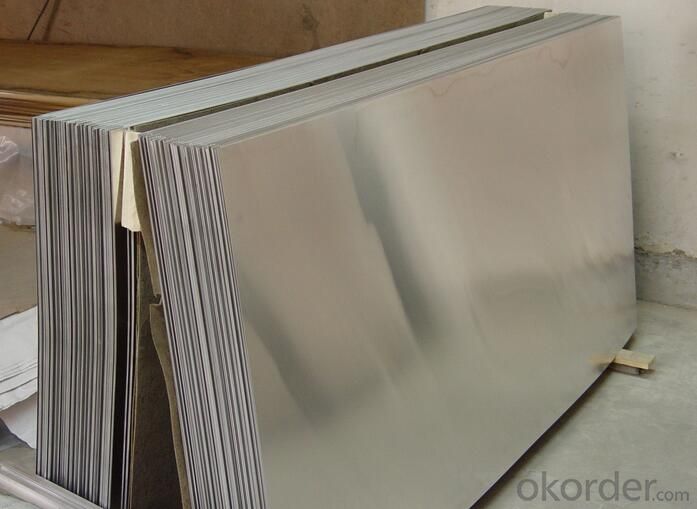
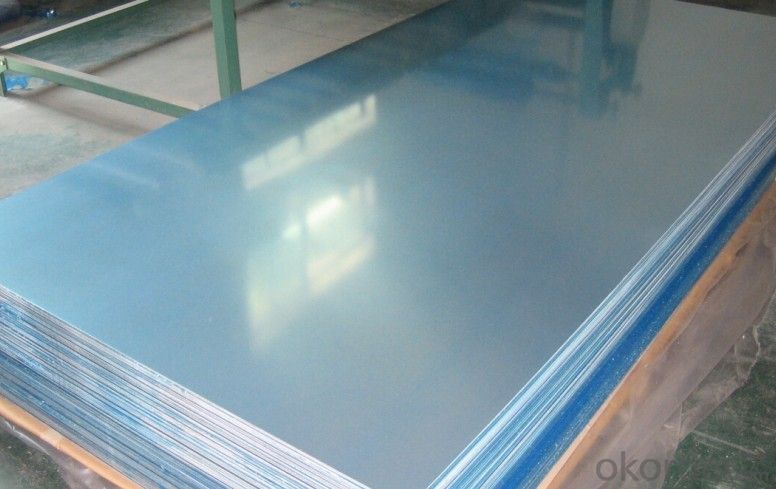
- Q: Can aluminum sheets be used in electrical applications?
- Yes, aluminum sheets can be used in electrical applications. Aluminum is a good conductor of electricity, and it is commonly used in various electrical components and applications. Aluminum sheets are often used as conductive materials in power transmission lines, bus bars, and electrical enclosures. They are also utilized in the manufacturing of capacitors, transformers, and heat sinks due to their excellent thermal conductivity properties. Additionally, aluminum sheets are lightweight and corrosion-resistant, making them suitable for electrical applications where weight and durability are important factors.
- Q: Okay, so i swallowed some aluminum foil like the size of a quarter from my fruit rollup wrapper, ha don't ask why? but my stomach KINDA hurts right now...like 2 minutes later.. Could this have done any damage to me.?
- lol... You should be fine. But it may hurt a little coming out the other end? I don't know. One thing I do know: I swallowed a penny when I was a child and never had any trouble.
- Q: aluminum is used to make planes, cast iron is used to make heavy mashines. what is the comparisonof teh densities of aluminum and cast iron?
- The density of aluminum is MUCH lower than cast iron (thus, aluminum is LIGHTER). Because it is lighter, it would be much more ideal for applications like plane building, which is why aluminum is used over cast iron in airplanes. As well, aluminum has a protective coating called aluminum oxide which protects it from corroding in water. [Answer: see above]
- Q: Can the aluminum sheets be used for soundproofing applications?
- Yes, aluminum sheets can be used for soundproofing applications. Aluminum is a good conductor of sound, but when used in combination with other sound-absorbing materials or in soundproofing structures, it can effectively reduce noise transmission.
- Q: Can the aluminum sheets be used for manufacturing furniture?
- Yes, aluminum sheets can certainly be used for manufacturing furniture. Aluminum is a lightweight and strong material, making it ideal for creating furniture that is both durable and easy to move around. Additionally, aluminum is resistant to corrosion, so it can withstand exposure to various environmental conditions. Moreover, aluminum sheets can be easily shaped and formed into different designs, allowing for versatility in furniture manufacturing. Overall, using aluminum sheets for furniture manufacturing can result in high-quality, stylish, and long-lasting pieces.
- Q: Are aluminum sheets suitable for laser cutting?
- Indeed, laser cutting is a suitable method for aluminum sheets. Aluminum, which possesses exceptional reflective properties, high thermal conductivity, and a low melting point, is extensively employed in laser cutting operations. These remarkable attributes render it a prime candidate for being sliced by a laser beam. Laser cutting ensures accurate and neat incisions on aluminum sheets, enabling the effortless realization of intricate patterns and intricate forms. Moreover, laser cutting for aluminum sheets guarantees rapid and efficient processing, delivering enhanced productivity and cost-effectiveness.
- Q: I deal with aluminum plate material 2A12, thickness 14mm, crack, same temperature treatment, diameter 8mm aluminum bars, no cracks, original aluminum plate quenching crack, and aluminum plate, the material is closed
- There are no special cracks in the aluminum bars, such as 1 of the heat distortion, 3 of the metallurgical quality, 2 of the solid solution system, the reasonable analysis of the crack location and appearance
- Q: We just bought a house with aluminum wiring and we knew about it in the inspection report, but everyone kept telling us it's no big deal. There was so much going on and I didn't look into it myself and now I just surfed the web on it and I am filled with anxiety! Please help! Did we make a huge mistake? How common are the dangers? Also, my insurance company didn't ask me about wiring, but some sites said that they don't cover aluminum wiring. Should I ask them? I am so overwhelmed and scared. I do not want a fire for my family!
- I used to own a home with aluminium wiring in it. In the years 1972 to 1974 the Vietnam War had priority for the copper to be used in bombs, planes, tanks, etc. So for a few years the building industry had to use aluminum wire for the new home construction going on. I never had a single problem with the wiring in my 34 year old house. if your upgrading or puting in a new circuit i suggest going all the way to the service box... either way you can connect the copper to an aluminum wire but only and I stress only by using a cu-al connector. because dissimilar metal react chemically these two wires need a connector between them which will not chemically react... i know its alot but trust the science One thing to remember is that if you ever run a new service line or you do a repair,, make sure that if you use copper wire for the repair or the new install, that you apply the semi liquid compound to all of the connections, between the aluminum wire and the copper wire. You can use standard wire nuts at all connections. You can also buy wire nuts with the compound in them. When connecting aluminum and copper wiring together you must use devices marked CU AL which are designed to keep the 2 wires from touching each other. Best advice is to absolutely not use copper wiring! nti-oxidizing paste to lower the fire hazard. 3M also makes a crimp type tool and connectors that can Hope this helps
- Q: The idea that you can adequately protect yourself from the Alien and government thought transmissions with a 'tin-foil / aluminum hat is just a myth. The correct and real thing to use is an aluminum construction site type of hard-hat. That is why the government and all major defense contractors wore aluminum hard-hats back in the 1950's. The plastic and fiber glass hard-hats that they use now is only because the Aliens got wise to the old aluminum hard-hat trick and outlawed them after the Aliens and their Illuminati minions took over after President Truman got out of office. Everyone knows that.So does any company anywhere in the world currently defy the Alien’s production ban on aluminum hard hats? Or is e-bay and garage sales the only source of aluminum construction site hard hats?
- That's just what they want you to think. The aliens invented the myth that they have mind control and mind reading technologies to get ???г? you to buy more aluminum because they own 70% stock in all the companies that mine, process, manufacture, and recycle aluminum and aluminum products. By purchasing aluminum foil, aluminum hard hats, or any other aluminum products you are only making the Aliens wealthier and more capable of funding their eventual conquest of earth and its outlying territories.
- Q: What are the distinctions between standard and custom-made aluminum sheets?
- <p>Standard aluminum sheets are mass-produced with fixed dimensions and specifications, making them readily available and cost-effective. They are suitable for common applications where specific dimensions are not a priority. Custom-made aluminum sheets, on the other hand, are tailored to meet specific requirements regarding size, thickness, and other properties. They offer flexibility for unique applications but may be more expensive and have longer lead times due to the specialized manufacturing process.</p>
Send your message to us
Aluminum Sheets for Walls - 5052 5054 0.2mm-1mm Thickness Insulation Aluminum Mirror Sheet
- Loading Port:
- China main port
- Payment Terms:
- TT OR LC
- Min Order Qty:
- 5 m.t.
- Supply Capability:
- 500 m.t./month
OKorder Service Pledge
OKorder Financial Service
Similar products
Hot products
Hot Searches
Related keywords
